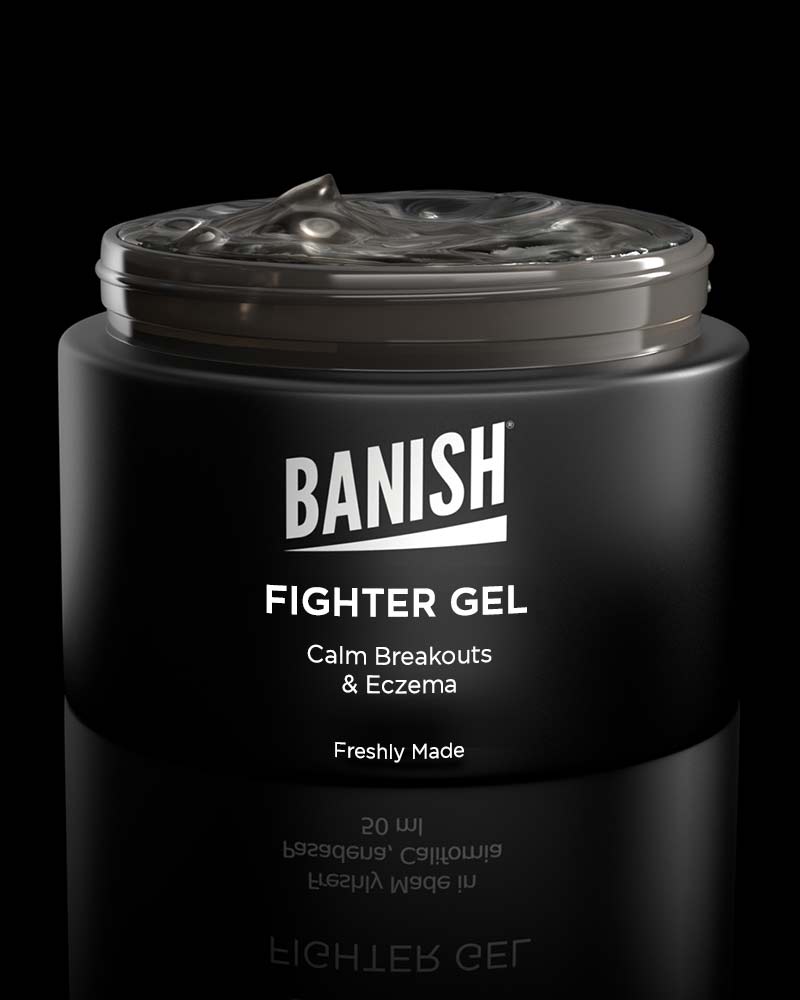Guest Blog By Vegan Acne Sufferers

I hate to be the bearer of bad news, but ... winter is coming.
That means it's maybe time to start thinking about changing up your skin care routine. After all, keeping your skin beautiful and healthy is something we need to work at all year long - and as the weather changes from warm to cold, our skin may require a little skin care tweaking to function at its full potential.
Why Might I Need to Change My Routine?
If you live in a region where seasonal changes are part of life, the needs of your skin will constantly change, and finding a solution that works best for your complexion and your lifestyle is an important aspect of skincare. During the colder months, our skin tends to get very dry as a result of the temperature, the wind, indoor heating, and sometimes even from a lack of proper hydration (hot summer months tend to force us to drink more!).
Maybe dry skin doesn't feel like a good enough reason to bother with changing your skin care routine. But consider this; when our skin gets dry its natural defenses become inhibited, and our skin may even crack and break. This spells bad news, as this can expose our bodies to harmful bacteria which our skin isn't able to fight off.
People who struggle with acne may experience flare-ups more frequently during the colder months because of this, and sufferers of eczema or rosacea may experience more intense symptoms such as itchy skin and redness in dry and cold weather, which may require a little extra care.
How You Can Keep Your Skin Beautiful & Acne-Free in the Winter
1. Moisturize.
Moisturizing seems like a given, but you'd be surprised how many people still don't moisturize their skin, even in the winter months. Generally, a shift from summer to winter skin care will mean changing your light-weight moisturizer in for a heavier cream moisturizer.
2. Nourish.
Moisturizing outside is important, but so is moisturizing "inside". We tend to drink less water in the winter because we aren't sweating as often and therefore we don't "feel" as thirsty. But don't let that fool you! You still need to drink lots of water to stay hydrated.
If it helps, switch up your water bottle for a few cups of herbal tea. It's a yummy way to stay hydrated, and if you choose teas like green tea, white tea and spearmint tea you'll be helping your skin further by adding in all the extra antioxidants!
If you're not sure if you're hydrated, check your urine - it should be clear to light yellow. If it is dark and smelly, you need more water!
3. Humidifier.
Sometimes a moisturizer and good H2O habits aren't enough to combat extreme temperatures or very dry indoors. Try getting a cheap humidifier to keep by your bed as you sleep. The surface of our skin gets drier as the air does, so keeping adequate moisture in the environment helps skin, hair and your throat from becoming too dry.
4. Take warm showers.
There's nothing more orgasmic than taking a hot shower on a really cold day. Unfortunately, hot water on our skin can cause us to lose a lot of moisture. Keeping shower temperatures down and keeping showers short can help keep your skin well-hydrated.
5. Protect your skin.
Even in the winter, our skin is exposed to harmful UV rays. You may notice that the sun rays feel less intense in the winter, but UVA is still out in full force, as strong in the winter as it is in the summer. Make sure to continue using a light-weight broad-spectrum sunscreen, or products that contain SPF, year-round.
6. Shield your skin.
Simultaneously, it's also important to shield your skin as much as possible from the elements. Anyone who has ever been tossed around by a vigorous wind in Northwestern Ontario knows how much those winds can send chills right through the skin and to your bones. If you're ever walking for long periods in the elements, try to wear a scarf or neck warmer and a toque to protect your skin.
7. Stay active.
I know that winter can become a lazy, dormant season for many of us. It's hard to ride your bike through snow, it's not safe to run alongside a snow-covered road, and who the heck wants to be outside on super cold days, anyway?
But we do need to find ways to stay active, even if it means stepping out of your usual comfort zone and running on a treadmill, swimming in an indoor pool, going to the gym, or just doing workouts indoors.
Working up a sweat can really help to keep your skin healthy. Exercise increases your heart rate and gets your blood pumping, which then circulates oxygen to your skin's cells.
Exercising will also encourage you to drink more water and keep your body better-hydrated that way, too!
8. Take an omega supplement.
To give your skin an added boost of hydration, you can always take an omega-3 supplement. Omega-3s are a crucial part of your skin’s lipid content, and help to bolster its barrier function, which, when working properly, acts like a seal that keeps moisture in and irritants out. Researchers discovered that women who consumed half a teaspoon of omega-3-rich flaxseed oil a day increased skin hydration by 39% after 12 weeks. Their skin also felt significantly less rough and was less sensitive.
9. Face masks.
I love face masks and I use them year-round. They're a great way to combat any skin condition you're dealing with. But in the winter months, especially, a good nourishing face mask will do wonders. Or, if you want to make a mask at home, avocado, oatmeal, banana, and aloe are all great ingredients to include!
10. Eat better.
The way you eat can have a profound impact on how your skin looks and feels. Eating and drinking antioxidant-rich foods with plenty of leafy greens (frozen spinach is economical for winter months), and eating seasonal fruits and veggies can help keep your skin nourished from the inside.
11. Exfoliate.
While exfoliation has many benefits and is a part of any good skin care routine, keep in mind that winter skin can sometimes be more delicate and so any harsh or abrasive exfoliants should be tossed in the trash. Opt for a gentle mechanical exfoliant, or a chemical exfoliant. Depending on your skin, you should be exfoliating no more than 1-2x per week.
12. Consider switching cleansers.
Your current facial cleanser may be sufficient for year-round use, but some people's skin will change so drastically with the seasons that this just isn't possible.
Summer might call for a foaming cleanser, whereas the use of a foaming cleanser in the winter could exacerbate dry skin.
Follow these 12 steps to winterize your skin care routine, and your skin will be healthy and nourished all year long!
------------------------------------------------------------------------------
About VeganAcneSufferers

I first got acne in high school, and it came back in my early adulthood. I was able to struggle through those difficult times and come out of it a stronger, wiser, healthier person as a result. I'm here to help you do the same thing!
Connect with Veganacnesufferes on: Youtube Twitter
--------------------------------------------------------------------------
























Leave a comment
All comments are moderated before being published.
This site is protected by hCaptcha and the hCaptcha Privacy Policy and Terms of Service apply.